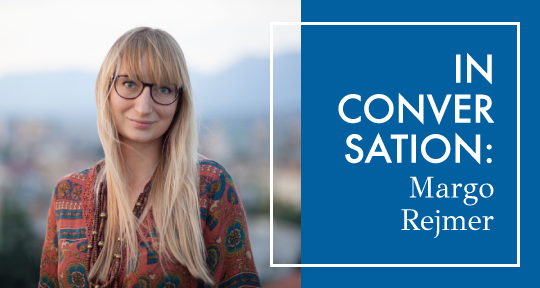Margo Rejmer’s spare, exacting prose and illustrious methods have earned her widespread praise for both her meticulous reportage and her discerningly detailed narratives. From recollections garnered from the survivors of Communist Albania, to the stories collected from the varied and elaborate landscape of Bucharest, to the grappling of relationships in certain toxic fictional characters in Warsaw, the worlds depicted are all at once worn with secrecy, curious with hope, and bold with the human instinct for survival. In this following interview, Asymptote’s Filip Noubel speaks to Rejmer on subjects of writerly process, choice under totalitarianism, and individual freedoms.
Filip Noubel (FN): You have written two books on the experience and the consequences of dictatorial Communism in Ceauşescu’s Romania and Hoxha’s Albania. What drew you to those countries that, even within the context of then Communist Central Europe, have been generally perceived as economically underdeveloped, politically very conservative, and unattractive as destinations?
Margo Rejmer (MR): Both of the books, Bukareszt. Kurz i krew (Bucharest. Dust and Blood, 2013) and Błoto Słodsze Niż Miód. Głosy Komunistycznej Albanii (Mud Sweeter than Honey: Voices of Communist Albania, 2018) deal with problems of power, strategies of survival in the authoritarian system, and searching for spaces of freedom. Although, when I started working on them, I didn’t know where they would lead me, as it turns out, everyone has their own inner path that leads to the same point. My book about Albania was supposed to simply be a guide to the Albanian mentality for the Polish reader. In the end though, it turned out to be a story about an isolated Orwellian-Kafkaesque space where people are controlled and punished, yet try to look for happiness and for a substitute for freedom, at least internally.

